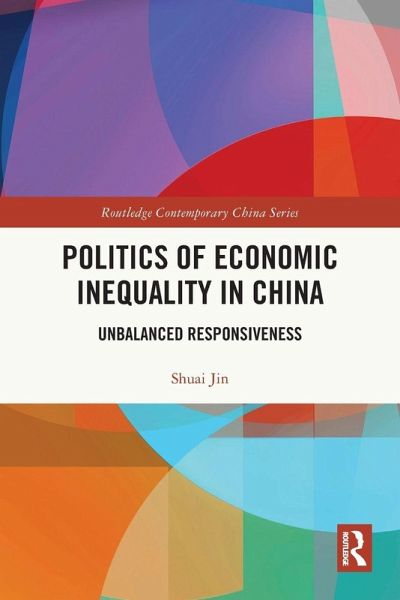This book applies a novel theory of 'unbalanced responsiveness' to the issue of economic inequality in China to better understand the relationship between authoritarian regimes and their citizens.
Hinweis: Dieser Artikel kann nur an eine deutsche Lieferadresse ausgeliefert werden.
Hinweis: Dieser Artikel kann nur an eine deutsche Lieferadresse ausgeliefert werden.
"Jin has developed a theory of unbalanced responsiveness to explain economic inequality and redistribution in China. This thought-provoking book sheds new light on the inner workings of the political economy of the world's largest authoritarian country in a creative and methodologically-rigorous way."
Kevin J. O'Brien, Jack M. Forcey Professor of Political Science, UC Berkeley, USA
"Jin's book uses innovative survey data to show how economic inequality in China exacerbates social conflicts. Her analyses of attitudes and leaders' rhetoric about pension, welfare, and poverty reduction programs demonstrates that these issues are highly salient for Chinese people."
Sara McLaughlin Mitchell, F. Wendell Miller Professor, University of Iowa, USA
Kevin J. O'Brien, Jack M. Forcey Professor of Political Science, UC Berkeley, USA
"Jin's book uses innovative survey data to show how economic inequality in China exacerbates social conflicts. Her analyses of attitudes and leaders' rhetoric about pension, welfare, and poverty reduction programs demonstrates that these issues are highly salient for Chinese people."
Sara McLaughlin Mitchell, F. Wendell Miller Professor, University of Iowa, USA








